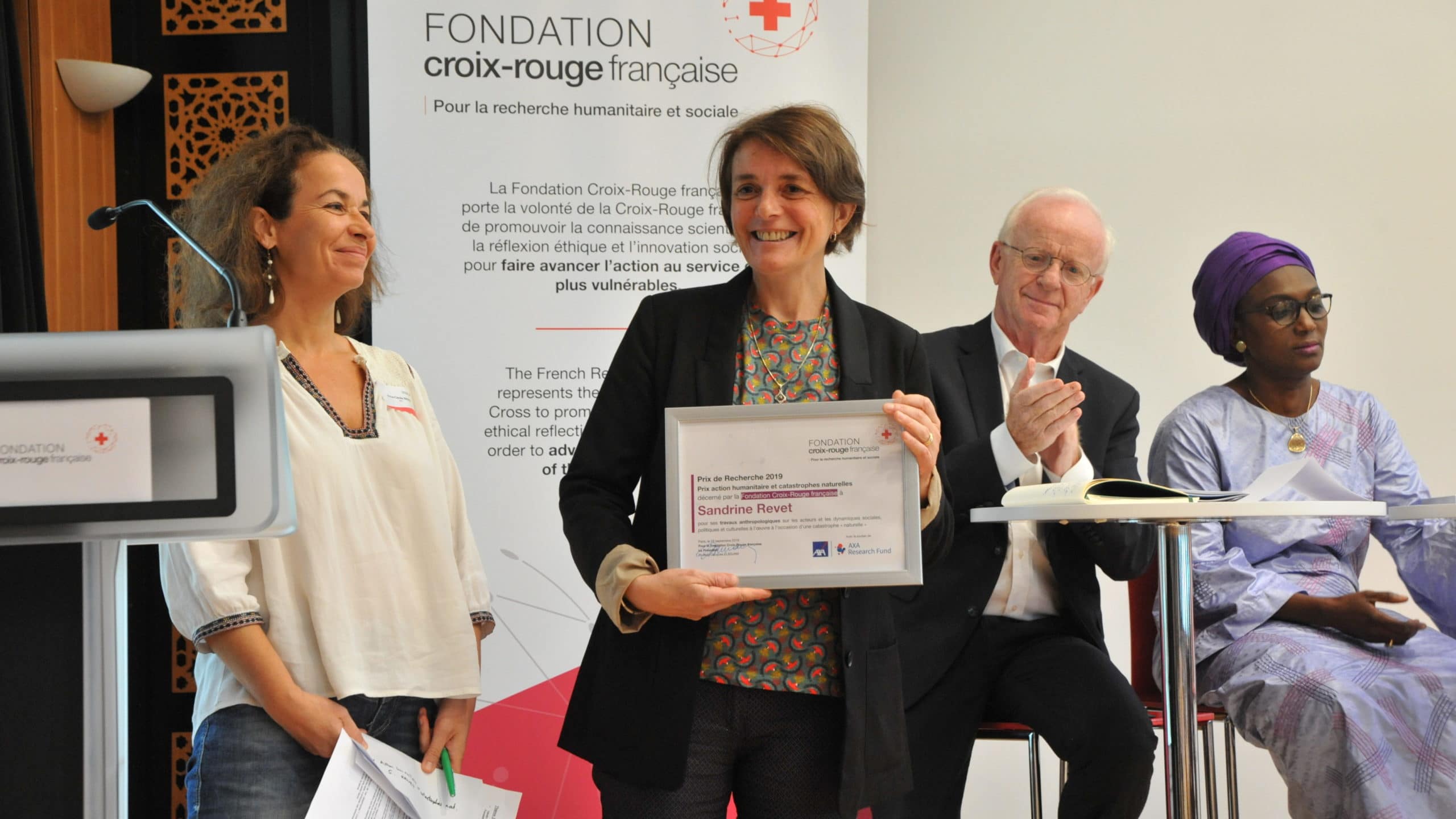Questions to… Sandrine Revet.
With pedagogy and precision, Sandrine Revet, Doctor of Anthropology, Director of Research at the Centre de recherches internationales at Sciences Po Paris, who was awarded a Foundation Research Prize in 2019, provided an overview of the debates and reflections that impact the management of ‘natural’ disasters, from prevention to reconstruction.

What is a so-called natural disaster, and is there consensus on this term?
Sandrine Revet: Everybody now agrees that no disaster is truly natural. Climatic or geological events become disasters when they affect humans in their path. In the middle of the ocean, a hurricane is just a hurricane. If it hits inhabited coastlines, it becomes a disaster when buildings are fragile, water services are failing, or when people are settled in flood-prone areas… Of course, it is natural, unlike health disasters, or industrial disasters… But disaster is foremost the product of vulnerabilities.
The challenge is therefore to identify these vulnerabilities…
SR: Indeed, although there is a consensus on the need to reduce vulnerabilities, opinions differ as to their origin. In the 1980s and 1990s, the focus was on physical vulnerabilities and technical responses such as strengthening dykes, building walls against tsunamis… We realised that vulnerabilities are also rooted in infrastructure – water, electricity, health – the organisation of society, public policies… For example, dependence on food imports increases the risk when communication channels are destroyed. The current health crisis has highlighted the issue of sovereignty over a number of products. When Hurricane Katrina struck in the United States, the most disadvantaged part of the population was unable to evacuate despite the warnings, due to a lack of means of transport. Social inequalities can be a factor of vulnerability. For poorer countries, the issue of vulnerabilities inevitably relates back to deeper developmental problems.
Many NGOs are developing prevention and information campaigns to build resilience in the face of crises. Is that an interesting route?
SR: Resilience is the ability to cope with a shock and recover from a crisis. In short, the opposite of vulnerability… The concept is widespread amongst NGOs and sponsors. When NGOs raise awareness of risks, disseminate good practices, distribute emergency kits or encourage solidarity between neighbours, they are doing their job. However, many researchers deplore the fact that the concept of resilience is being used to shift the burden of crisis response onto communities, neighbourhoods or individuals. Resilience should not be used to exonerate public action from its responsibilities!
In the case of the most serious disasters, the organisation of aid is often done at the international level, with standardised tools and methods, which sometimes fail to take the local context into account. What is your position on this?
SR: The standardisation of tools and methods is the condition for being able to act in common in fields with many international actors. This involves avoiding duplication, disorganisation or inconsistencies. The results are good practice guides and kits that people try to implement. Obviously, this can raise problems of adaptation to the local context. In the name of efficiency, it may be possible to bypass local authorities who are considered to be too slow, to ignore partners suspected of cronyism, or to neglect the practices of the population… In the urgency of the crisis, some methods of intervention that are tolerated to save lives will no longer be tolerated in a long-term reconstruction project. As with humanitarian aid in general, the challenge is not to cause more problems than we solve. In the name of urgency, some things are misapprehended. For example, to avoid epidemics, the dead are buried in mass graves, rituals are hindered, and mourning is disrupted. This can lead to resentment, distrust and rejection amongst the populations … and therefore to new factors of vulnerability.
How can research be useful in supporting disaster management?
SR: The question of usefulness does not necessarily have to be asked of researchers. This does not mean that research should not be concerned with the field. On the contrary, the actors on the ground are at the source of our work, through their intuitions and experiences that we listen to and collect. Faced with an emergency and the need to act quickly, they do not always have the time to question their practices. Rather than limit ourselves to answering their questions, we need to shed light on the action on the ground with a new, enriched, lateral perspective… Therefore, I do not think our role is to come up with turnkey solutions. However, it is our responsibility to facilitate access to our research, perhaps using new formats, as we are doing right now.





